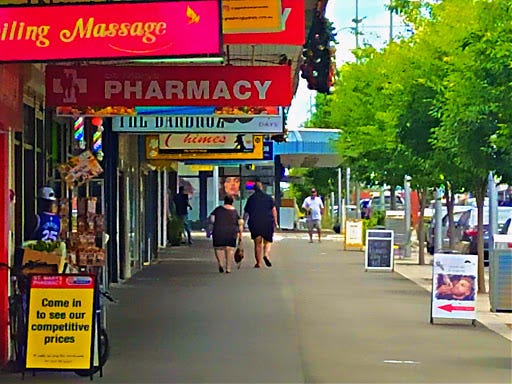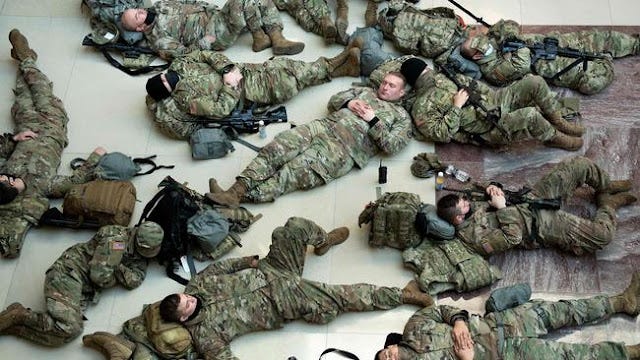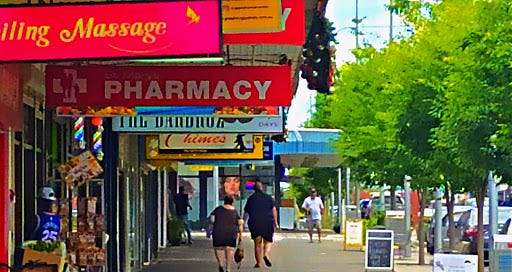
Sometimes, with the Psyop morons still running through his head and this, a bewildering place, if not ridden through with danger then ridden through with hypocrisy, a different kind of danger, the unpleasantly squashed, a culture destroyed, a demon at work, a monstrous squashing of all that was good about the place, a bewildering blitz on common sense, as dysfunctional and incompetent Australian governments placed themselves front and centre of everybody's lives.
The new wave of Covid hysteria, propelled purely by government and their handmaidens in the mainstream media, were doing enormous harm. And nobody was holding them to account, not least a population barely capable of dressing themselves, much less thinking outside the parameters imposed on them by compromised elites, jackals who would eat anything to survive, elites who knew not even their own minds, the devil's work, the masks proliferating in shopping centres, an easily frightened population.
Submission, he'd always wanted to read that book.
Now it was cast everywhere, as if the governments had become the gods front and centre of everybody's lives, everybody's waking moments, as the good burghers, the industrious ones in a largely lazy population, watched their own businesses go down the drain, as the public herd scorned with derision anyone who wouldn't wear a mask, those, that frightening, truly horrible herd they called the humans, how easily they were fooled, how easily manipulated, with a sadness that crept through everything because we could have been denied, we could have left this place for another eon, we could have abandoned you to your own fruitless cruelties, where you killed both the talented and the dull witted, where the morbidly obese barely had enough brain function to make it back to their Housing Department flats, where all hope was extinguished in a shocking malfunction not just of government but of a spiritual realm.
We made allies where you didn't know they existed.
We sought function where you had nothing but form.
We picked across the millions and were dismayed.
There was a point to the precise geo-spatial location. Uprooted, those crawling tendrils linking us to another time and place were themselves torn into an aching void.
His anger was just a drum roll.
There was worse to come, much worse.
We swept through the armies of the interior. We laid waste our enemy. We infiltrated everything; and all you saw was a shuffle, a slight derangement. You didn't even see the fluxing of the air as your belief systems collapsed.
We weren't soldiers here; not this day, not this hour. We weren't even frontline troops.
We were the initial surveyors.
Was anything in this debacle worth resurrecting?
What was good about this culture that was worth saving?
As the government atomised what was already left of a divided, non-functioning society, a place where the gruff interactions and the general non-compliance, or attitude of rebellion, the capacity of a people to think for themselves, take care of themselves, was being eradicated with every passing day; where the love we might have felt for you was broken on the rocks, the reality so far from hope we had to seek across those sun drenched, tree soaked valleys in order to find it.
Yes, there were ways to communicate before the internet.
Yes, these people made him sad.
No, they were not going anywhere.
THE HEADLINES
National Guardsmen sleep on Capitol building floors amid threats of violence
As the threat of violence ramps up in America, shocking images from the hallways of the Capitol building show just how much is at stake.

'Blood on his hands': Trump impeached for second time
Washington: Donald Trump has become the first president in US history to be impeached twice after the US House of Representatives found him guilty of inciting last week's deadly riot at the Capitol.
The House voted 232-197 to impeach Trump on Thursday (AEDT) with just a week remaining until the end of his presidency and the start of the Biden administration.
Chief Medical Officer slaps down Craig Kelly's COVID-19 theories
Liberal backbencher Craig Kelly has been slapped down for advocating alternative cures for COVID-19 in a warning from the nation's top medical officer that there is no evidence to show the treatments work.
After days of growing debate over the backbencher's claims, Chief Medical Officer Paul Kelly said the latest medical studies had not found drugs like ivermectin and hydroxychloroquine were useful in preventing or treating COVID-19.

Chief Medical Officer Professor Paul Kelly has rejected claims by Liberal backbencher Craig Kelly that drugs like ivermectin and hydroxychloroquine were useful in preventing or treating COVID-19. CREDIT:ALEX ELLINGHAUSEN
Professor Kelly was reluctant to criticise the backbencher by name, other than to say they were not related, but he rejected Mr Kelly's key claims for coronavirus cures as well as his complaints about rules that require people to wear masks.
The Liberal backbencher, who represents the seat of Hughes in south-western Sydney, has repeatedly challenged government policy in dozens of Facebook posts supporting alternative treatments for the coronavirus.
"Forcing children to wear masks is causing massive physical and psychological harm that can only be defined as child abuse," Mr Kelly wrote on Facebook.
Country boy who charmed Sydney's arts scene and the Herald's newsroom
PETER JOHN COCHRANE 1955-2021
On January 2, the news ricocheted around the Sydney arts community, and among former Herald journalists, that Peter Cochrane, a loved friend to many, had been diagnosed with a rare and cruel disease.

Peter Cochrane, former SMH arts and foreign editor.
For the past 12 years, Cochrane had been living happily in Hobart, with his wife, Miranda Harman – another Herald journalist – and their two young daughters but became suddenly ill in mid-November. It was not until December 18, however, that a diagnosis was made. Cochrane had Creutzfeldt-Jakob Disease, an illness that afflicts no more than 50 Australians a year. Doctors warned that it would progress rapidly and he had perhaps a couple of months to live.
The disease proved even crueller. In the early hours of January 9, Cochrane died, peacefully at home, with Miranda and their daughters by his side.
Cochrane was a fine journalist – a respected sub-editor, editor and writer at the Herald. In later years, he filled an editorial and writing role at the University of Tasmania with distinction.
But what made him special was his personality – a combination of the country-bred boy from Tamworth who needed no gloss of city pretensions but with a wicked and enduring sense of fun, and a zest for all that life and work could offer.
As the news of his death spread, Facebook rapidly became thick with tributes. Rick Feneley, who worked as a fellow sub-editor, wrote that “Peter had the gift of being both delighted and delightful. He brought so much cheer to the newsroom and to anyone who had the fortune of knowing him”.
Music critic Bruce Elder said Cochrane would be remembered “with genuine fondness and love by all who worked with him. A model of a great and generous editor – thoughtful of others, tough when he needed to be, always eager to cover the less obvious stories...”
Ninian Carter, who worked with him on the foreign desk, said when he saw Cochrane heading towards him, “I knew, before he’d arrive, that there was going to be an interesting foreign news graphic coming our way ... and a few good laughs as well. He was always extremely helpful and his enthusiasm for a subject wonderfully infectious.”

Peter Cochrane, pictured on a trip to the US.
As the artist Michael Fitzjames observed, too often in our workplace stories, we make legends of the monsters we have worked with or for, but it was “the legion of genuine and ... good people” – those like Cochrane – who had made the Herald the happy workplace that it was.
Tributes flowed too from the arts community. Jan Batten, for many years the media manager of the Art Gallery of NSW, said Peter had always persisted to ensure that the arts “had a voice in the mainstream dialogue. His integrity always shone through.”
Paul Byrnes, the Herald’s long-time film critic, called him simply “a prince”, adding that he was “that rarity – a journo with a kind heart, a country boy, and a lovely bloke to work for or with...”



